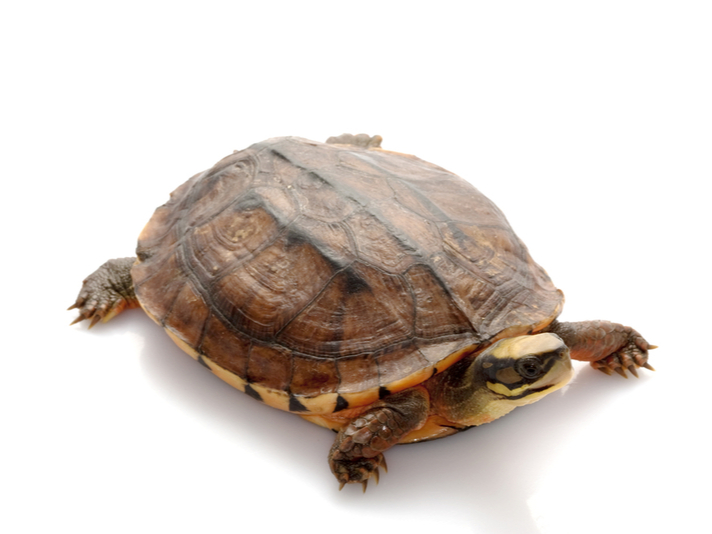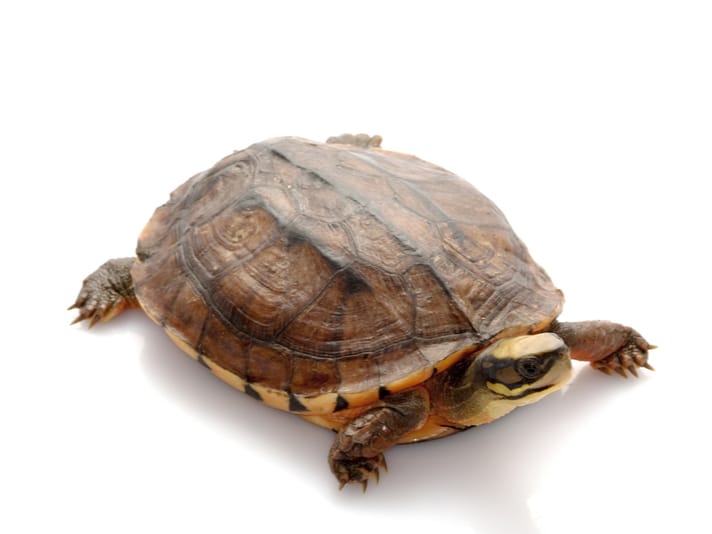The golden coin turtle often end up as ingredients in traditional Chinese medicine.
The golden coin turtle (Cuora trifasciata), native to southern China, Hong Kong, and northern Vietnam, has been the target of wildlife poachers in Hong Kong for more than 20 years. Hong Kong’s streams are one of the last places in the world where a wild population of breeding turtles are found, but poaching remains a big problem in the former British colony.

FIVESPOTS/SHUTTERSTOCK
The golden coin turtle often end up as ingredients in traditional Chinese medicine.
“If no green sea turtles are found in Hong Kong any more, it’s not as worrying in the grand scheme of things because it still has a global distribution,” Anthony Lau Yin-kun of Hong Kong’s Ocean Park Conservation Foundation told the South China Morning Post. “But if there are no more golden coin turtles here, it is a global problem.”
Lau, who is a scientific manager with the theme park’s conservation arm, often works to remove traps set for the turtle, also known as the three-striped box turtle, in Hong Kong’s waterways. According to the SCMP, 116 turtle traps were seized by authorities this year, compared with 95 in 2017, 134 in 2016, and 44 in 2015. And just a single successful prosecution of a poacher has occurred since 2013.
The poached turtles often end up as ingredients in traditional Chinese medicine as well as pets, where they are seen as a sign of wealth and good luck in Chinese culture. It is also used as an ingredient for a dessert called, 'Tortoise Jelly.' The turtle can fetch upward of US $13,000 at pet shops in Hong Kong.
Because the reptile is listed under Appendix II of the Convention on International Trade in Endangered Species (CITES), commercial possession of wild turtles requires a license, but farmed turtles do not. The idea was to farm the critically endangered reptile to take pressure off the wild populations, Kadoorie Farm and Botanic Garden senior conservation officer Paul Crow told the SCMP, but because farmed turtles result in more female turtles because of the temperature sensitivity in the incubation process, males are more expensive than females, which leads to an incentive to illegally hunt the reptiles in the wild.
Crow said that the government should target sellers of the animals and plug loopholes in Hong Kong’s licensing system to better protect the reptiles. Hong Kong’s Agriculture, Fisheries and Conservation Department doesn’t have data on the numbers of golden coin turtles in the wild, but told the SCMP that anyone caught poaching protected species face up to HK$100,000 fines and a year in jail. Unlicensed commercial possession of an endangered species can result in a HK$10 million fine and 10 years in prison.



